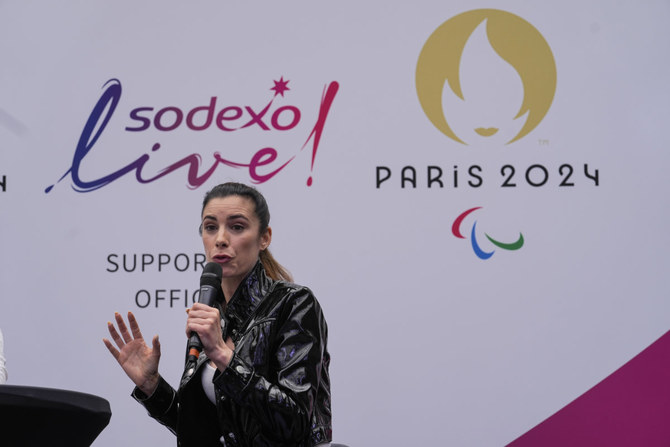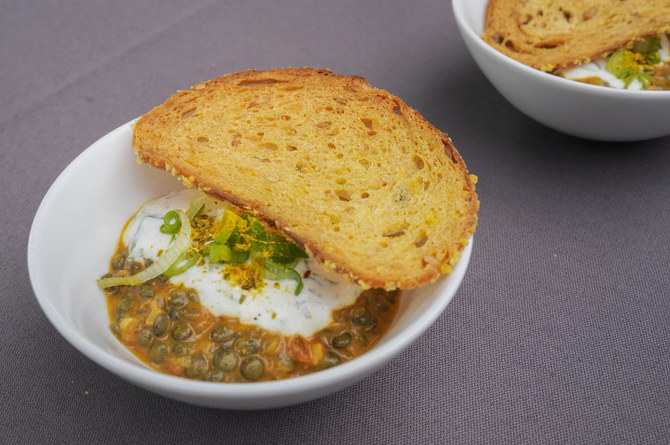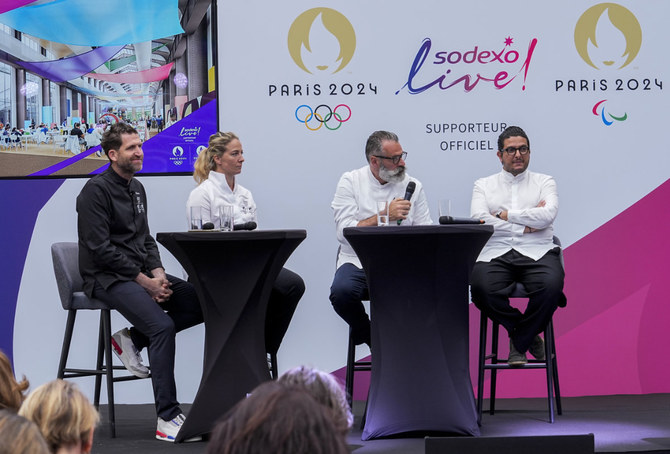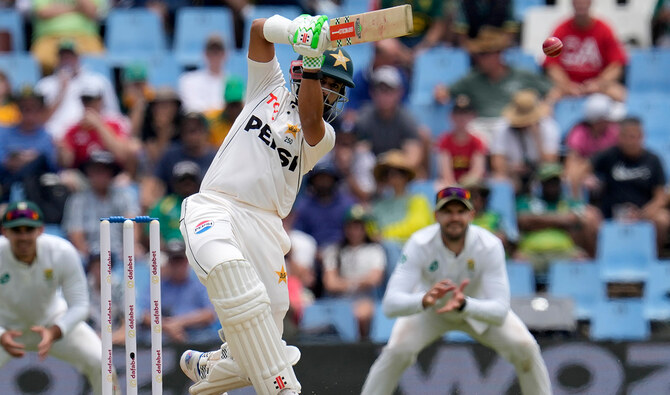PARIS: France’s vaunted gastronomy will be put to the ultimate test when organizers of the 2024 Paris Olympics have to feed 15,000 athletes.
The United Nations Educational, Scientific and Cultural Organization (UNESCO) inscribed the “gastronomic meal of the French” on its Representative List of the Intangible Cultural Heritage of Humanity in 2010.
“The gastronomic meal emphasises togetherness, the pleasure of taste, and the balance between human beings and the products of nature,” UNESCO said.
“The gastronomic meal should respect a fixed structure, commencing with an aperitif (drinks before the meal) and ending with liqueurs, containing in between at least four successive courses, namely a starter, fish and/or meat with vegetables, cheese and dessert.”
Realistically, the restaurants run by French catering giants Sodexo might not be offering up such a complete experience — and doubtless few athletes in the prime of their lives would take on such a culinary bonanza given they will be in Paris on tight schedules focused more on competing than indulging themselves.
Around 40,000 meals a day will be served during the Paris Olympics, using produce largely sourced in France.
Sodexo, through its subsidiary Sodexo Live!, already has experience of catering high-profile sporting events such as the Super Bowl, tennis’ French Open and the Tour de France cycling race.
But it will have its work cut out feeding participants at the July 26-August 11 Games and then the Paralympics that follow on August 28-September 8.
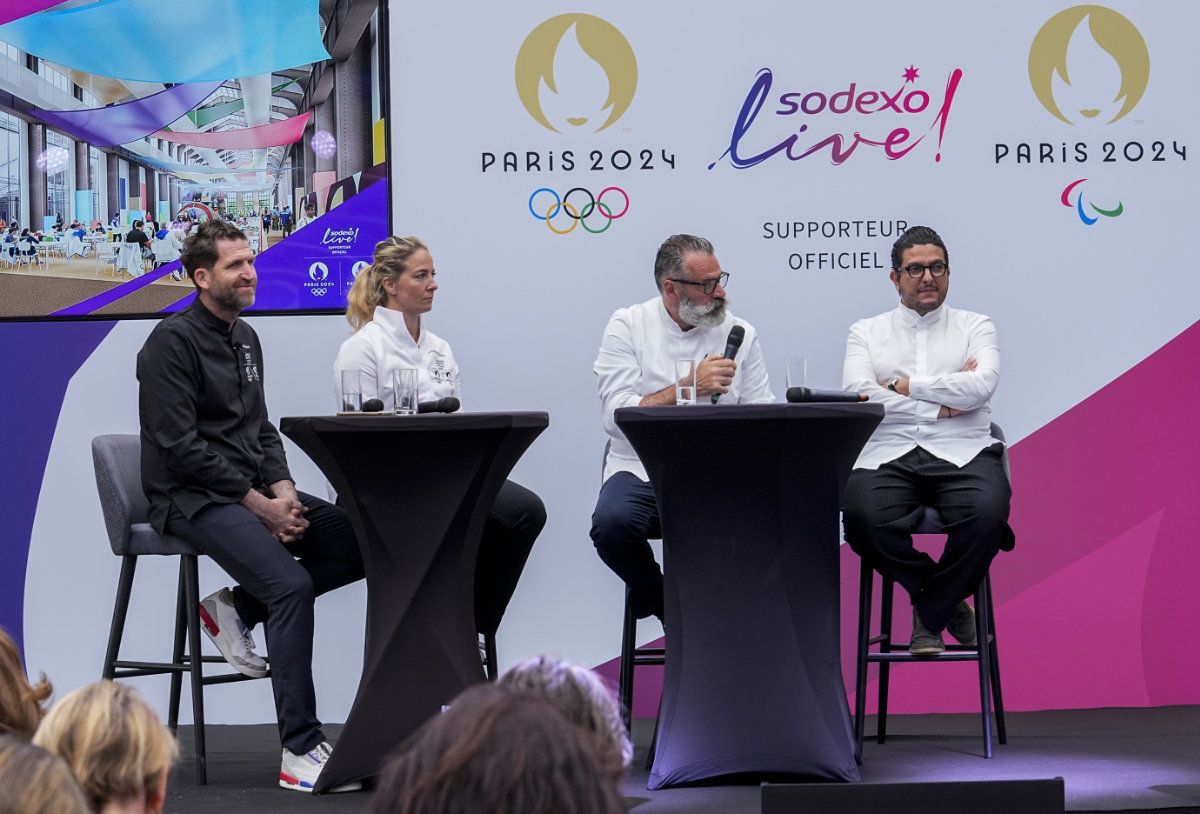
From left to right, leading French chefs attend a media conference on May 9, 2023, of Sodexo Live, a company tasked with serving 40,000 meals a day at the Olympic Village in Paris. (AP Photo)
Some 6,000 people will be employed to help in the restaurants, Sodexo Live! managing director Nathalie Bellon-Szabo said on Tuesday.
In addition to the Olympic Village, Sodexo will also cater 14 other Olympic sites and eight Paralympic venues throughout France.
Games organizers have made no secret of what they will be serving up: more vegetables than usual with an emphasis on locally-grown products.
Of the estimated 13 million meals that will be served during the Olympics and Paralympics, from a snack right through to a dish cooked by a top chef, the goal is to have produce that is 80 percent French.
It is a “huge logistical challenge,” says Philipp Wuerz, project manager for catering, cleaning and waste on the Paris 2024 organizing committee.
Avoiding queues, providing food that is healthy, varied and of good quality, with 25 percent of produce sourced “from within 250km” of each site, is challenging to say the least.
“We’re used to managing this type of event, but not over such a long period of time,” says Stephane Chicheri, chief executive of Sodexo Live!
There will be a necessity to remain “adaptable” over potential supply chain issues and price hikes for certain produce, Maxime Jacob, the organizing committee’s catering project manager, told AFP.
The athletes can choose from 500 recipes, which are currently undergoing fine-tuning before menus are signed off by the end of this year.
It is impossible, however, to be 100 percent local, Wuerz said.
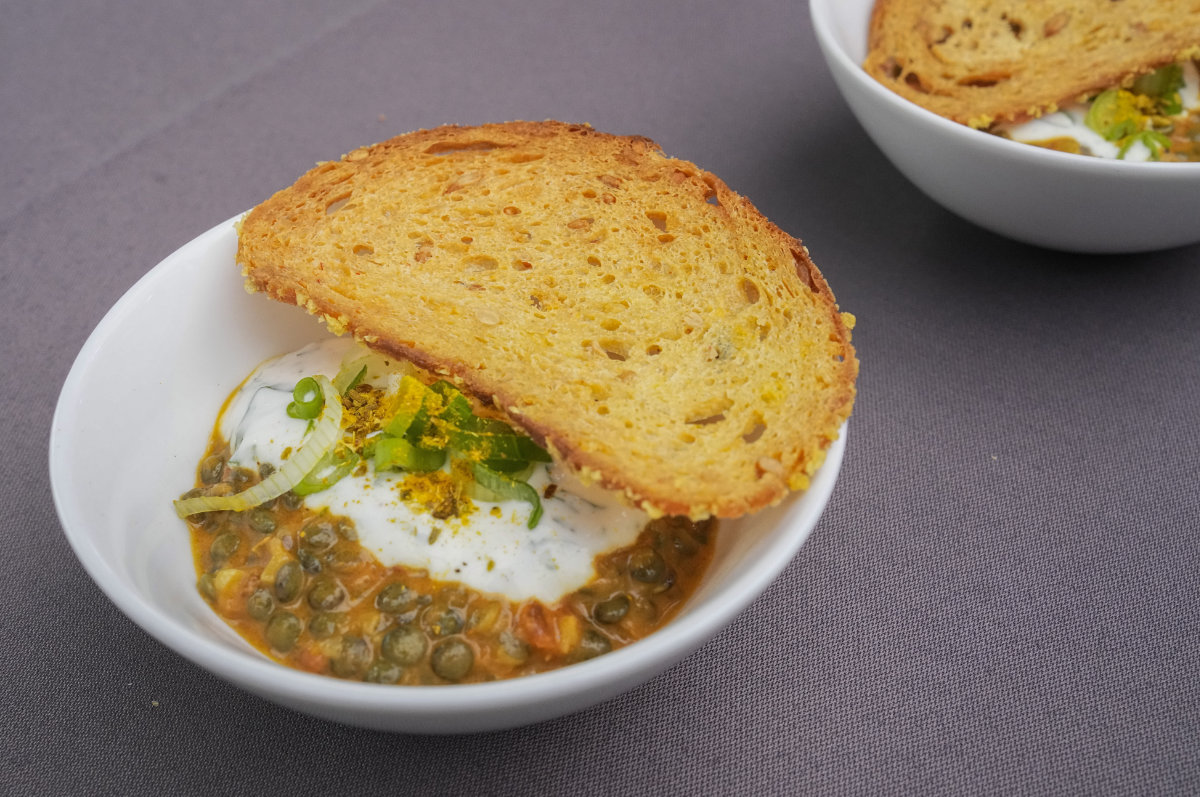
A green lentil dahl, with skyr coriander and a corn tuile dish of French chef Charles Guilloy of Sodexo Live is displayed during media conference in Paris on May 9, 2023. (AP Photo)
“The athletes will eat around three million bananas and they don’t grow in the Paris region!“
Bananas, exotic fruits and rice will nevertheless be “organic or fair-trade certified,” Wuerz says.
All meat and dairy products will be 100 percent French, while seafood will be from sustainable fishing.
The recipes have been drawn up after consulting athletes and nutritional experts, including Helene Defrance, a dietician who won a sailing bronze medal at the 2016 Rio Olympics.
“There are no set menus” because organizers have to adapt to the food habits of every athlete, Defrance says, be it light meals or carbo-loading.
During their stay at the village in the Seine-Saint-Denis region north of Paris, athletes will also be treated to haute cuisine.
A trio of French chefs will have their own space next to the main Olympic food hall.
Amandine Chaignot will serve up guinea fowl with langoustines or gnocchi in chicken sauce. Akrame Benallal has come up with a crispy quinoa muesli, while you can expect Alexandre Mazzia to produce a herb-packed chickpea pommade.
The main food hall will have 3,600 seats and offer up dishes that are not just French-themed but also from around the world, as well as halal food for Muslim athletes, Jacob said.
In a bid to help make the Games more sustainable, water fountains will be installed to reduce single-use plastics, while the kitchen equipment and cutlery will all be re-used after the Paralympics brings an end to a colossal logistic challenge.


